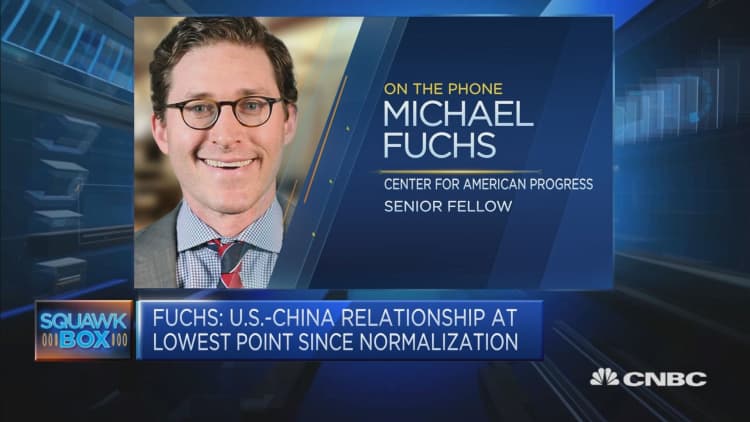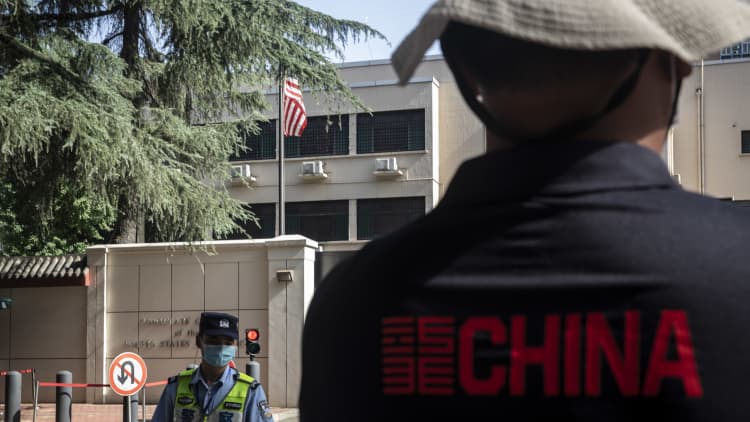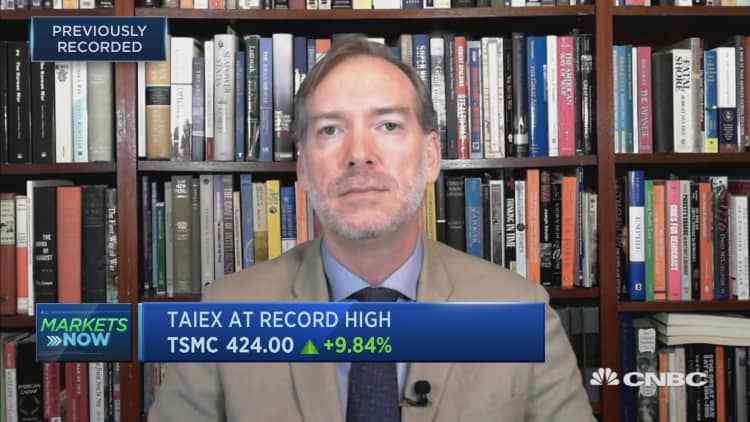
China would prefer to see U.S. President Donald Trump win a second term in office as it would allow Beijing to continue to pursue its international ambitions, said an analyst on Monday.
"Bluntly, Beijing would prefer to see the Trump administration continue," said Rodger Baker, senior vice president of strategic analysis at Stratfor, a consultancy.
"The reason is that at least, thus far, the way the Trump administration has acted and the perception internationally of that administration — and what you see going on domestically inside the United States and the polarization inside the United States — gives Beijing an advantage," said Baker.
He added that what Beijing would really fear is a concerted U.S. policy and a coordinated international policy that constrains China.
U.S.-China relations have become increasingly strained in recent years as the two sides spar on a range of issues, culminating in the closure of two consulates in the last week.
Last week, Secretary of State Mike Pompeo delivered a sweeping address at the Richard Nixon Presidential Library, saying the U.S. will no longer tolerate Beijing's playbook to usurp global order and calling on allies to "induce China to change."

Pompeo also called for the engagement and empowerment of the Chinese people, whom he described as "dynamic and freedom-loving people who are completely distinct from the Chinese Communist Party."
However, another analyst said it isn't quite clear what the Trump administration is trying to achieve even as there needs to be global pushback toward a domestically repressive and internationally assertive China.
"The question is not whether to push back, the question is how to do it most effectively," said Michael Fuchs, a senior fellow at the Center for American Progress, an independent non-partisan think tank.
But "at this point, it really just seems like the Trump administration is doing everything that it can to look tough — if you will — on China without a clear strategy that's been articulated here as to what they want to achieve, what kind of Chinese behavior they want to change. That to me is the real concern here," said Fuchs, who was appointed as deputy assistant secretary of state for East Asian and Pacific affairs by President Barack Obama and served from 2013 to 2016.
While there may be concerns domestically — particularly among businesses — about Beijing's aggressive diplomacy, there is support for Xi Jinping's approach to international relations, said Stratfor's Baker.
"They've shifted domestically to really pushing this concept of a new nationalism," said Baker.
"The idea of pan-Chinese-ism — you pull it together, you talk about 4,000-plus years of history and you say China is in a position where the world is treating it unfairly and China needs to finally stand up for itself, move past that ...Deng Xiaoping moment where China is quiet and stands on the sidelines and he's gaining some support for that internally," said Baker. "There is that sense of Chinese pride that is strong right now."
— CNBC's Yen Nee Lee contributed to this report.


